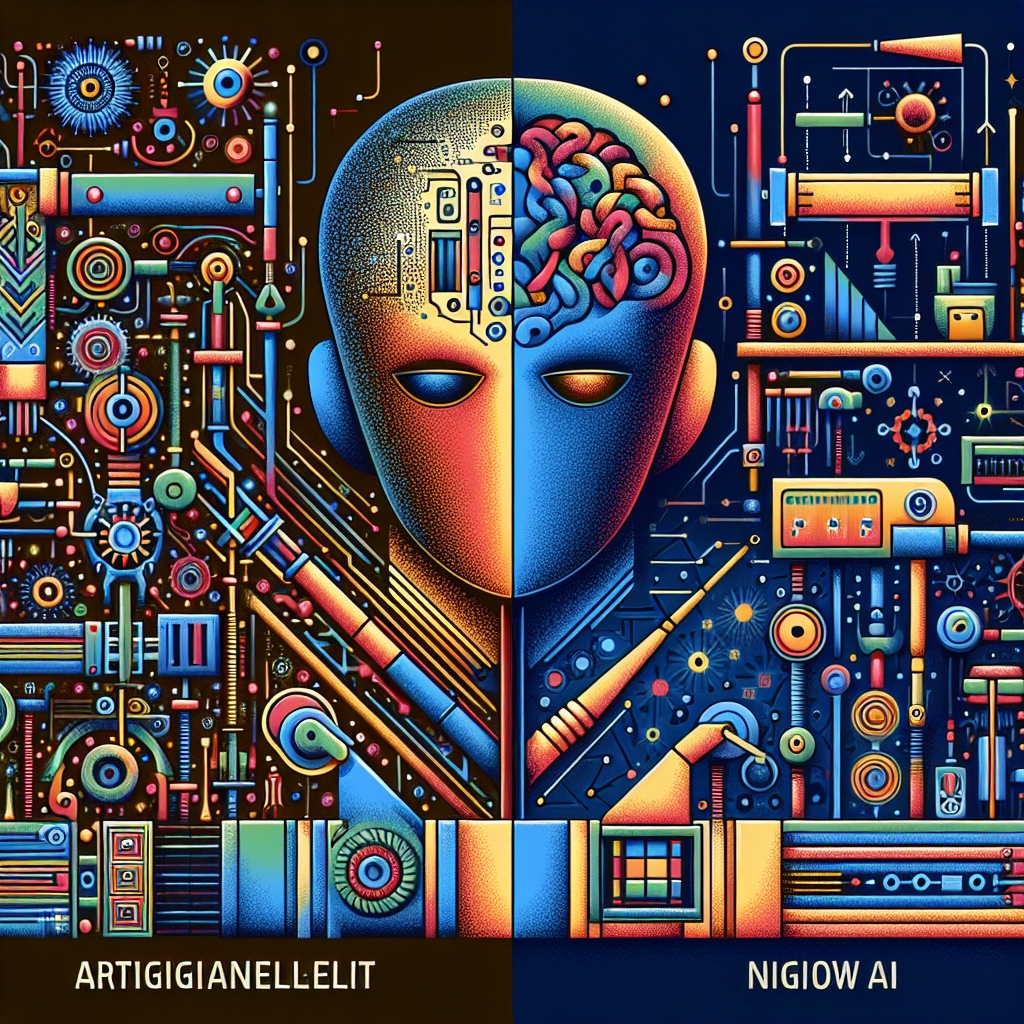Artificial General Intelligence (AGI) is a term that has been gaining more attention in recent years as advancements in artificial intelligence (AI) continue to progress. AGI refers to a type of AI that is able to understand and learn any intellectual task that a human being can. This is in contrast to narrow AI, which is designed to perform specific tasks or solve specific problems.
In this article, we will break down the basics of AGI, how it differs from narrow AI, and address some frequently asked questions about this fascinating field of study.
What is Artificial General Intelligence (AGI)?
Artificial General Intelligence (AGI) is a type of artificial intelligence that is designed to have the ability to understand and learn any intellectual task that a human being can. AGI systems are able to reason, plan, solve problems, understand natural language, and learn from experience.
AGI is often compared to human intelligence, as it is designed to mimic the cognitive abilities of a human brain. However, AGI systems are not limited by the constraints of human biology, and therefore have the potential to surpass human intelligence in certain areas.
How Does AGI Differ from Narrow AI?
Narrow AI, also known as weak AI, refers to AI systems that are designed to perform specific tasks or solve specific problems. These AI systems are usually trained on large amounts of data and are able to perform a single task very well, such as playing chess or driving a car.
AGI, on the other hand, is designed to have a more general intelligence that can be applied to a wide range of tasks. AGI systems are able to adapt to new situations, learn from experience, and apply their knowledge to new tasks.
One of the key differences between AGI and narrow AI is the level of adaptability and flexibility that AGI systems possess. While narrow AI systems are limited to the tasks they were designed for, AGI systems have the ability to learn new tasks and adapt to new situations.
Another key difference is the level of understanding that AGI systems have. AGI systems are able to understand natural language, reason, and think abstractly, while narrow AI systems are limited to specific tasks and do not possess the same level of understanding.
What are the Challenges of Developing AGI?
Developing AGI is a complex and challenging task that requires a deep understanding of human cognition and intelligence. There are several key challenges that researchers face when developing AGI, including:
1. Understanding human cognition: One of the biggest challenges in developing AGI is understanding how the human brain works and how intelligence is generated. Researchers are still working to uncover the underlying principles of human cognition and apply them to AI systems.
2. Generalization: Another challenge is developing AI systems that are able to generalize their knowledge and apply it to new tasks. AGI systems must be able to learn from experience and apply their knowledge to a wide range of tasks, which is a difficult task for current AI systems.
3. Ethical concerns: There are also ethical concerns surrounding the development of AGI, including the potential for AGI systems to surpass human intelligence and the implications of this for society. Researchers must consider the ethical implications of developing AGI and ensure that these systems are developed responsibly.
FAQs about AGI:
Q: Will AGI surpass human intelligence?
A: It is possible that AGI systems could surpass human intelligence in certain areas, as they are not limited by the constraints of human biology. However, it is unlikely that AGI systems will surpass human intelligence in all areas, as human intelligence is complex and multifaceted.
Q: What are the potential applications of AGI?
A: AGI has the potential to revolutionize a wide range of industries, including healthcare, finance, transportation, and more. AGI systems could be used to develop new treatments for diseases, improve financial forecasting, and enhance autonomous vehicles, among other applications.
Q: What are the risks of developing AGI?
A: There are several risks associated with the development of AGI, including the potential for AGI systems to surpass human intelligence and the implications of this for society. Researchers must carefully consider the ethical implications of developing AGI and ensure that these systems are developed responsibly.
In conclusion, Artificial General Intelligence (AGI) is a fascinating field of study that has the potential to revolutionize a wide range of industries. AGI systems are designed to have a more general intelligence that can be applied to a wide range of tasks, and are able to adapt to new situations, learn from experience, and apply their knowledge to new tasks. While there are several challenges associated with developing AGI, researchers are making significant progress in this field and the potential applications of AGI are vast.

